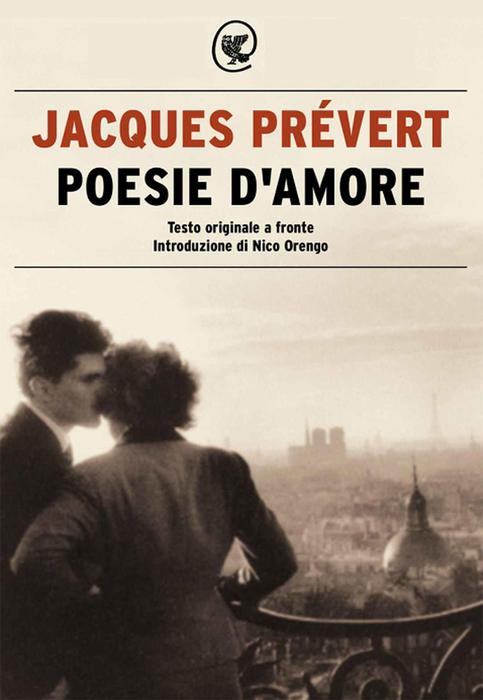A multifaceted and therefore very modern intellectual, Jacques Prevert, who died in 1977 , 120 of which are counted on February 4 , was first of all a poet, very popular but also loved by great writers; author of verses that music have become intense and unforgettable songs thanks to interpreters such as Juliette Greco or Gilbert Bécaud and it is enough to remember '' Les feuilles mortes '' (The dead leaves) ; screenwriter who collaborated with J. Renoir, A. Cayatte, C. Autant-Lara and especially with Marcel Carné by signing "Quai des brumes" and "Les enfants du paradis" to quote titles that made history; artist creator of appreciated collages, but also, at the beginning, in the 30s, committed playwright.
In short, true man of the twentieth century, born precisely on February 4, 1900, adhered to surrealism (1926-30), but he detached himself, without ever denying it, to attempt personal literary experiences, marked by the taste for elegant and slightly paradoxical digressions, committed, but with a veil of melancholy and irony. If in the 1930s he worked a lot for the theater, writing "La bataille de Fontenay" with the October Group of Workers' Theater for which he also wrote the anthem "Marche ou crève" (marching or dying) which he also had luck in Italy, it is in 1946, when his volume of poems ' 'Paroles'' comes out , that his name acquires prominence and receives recognition from a Nobel prize winner, Saint-John Perse, and from the father of surrealism, Andre 'Breton, who he defined "unrepentant dreamer", capable "of unveiling, in a flash, all possible sensations", so much so that the public immediately sold out the first edition of what soon became the first international poetry best seller. Yet his versatility, that immediacy exchanged for superficial ease that immediately made him a famous poet as a singer, made him look suspicious for a long time by the official culture. Reserves that we can say really fell only after his death, when in 1992 he was compared to the great classics of French literature with the publication of his works in the prestigious series of the Pleiad, alongside Proust as well as Queneau. In 1946 the war had just ended, there was hope and desire to return to life, and it was easier for his friends, the famous ones of the Rive Gauche cafes, to convince him to publish that first book, in which he rendered the air of the time with his desire to be among men and to interpret their joys and melancholies, feelings '' as popular pieces of existentialism ''.
Listen to "War and Poetry. Hatred and Contrast in Prevert's Verses" on Spreaker.
His destiny was to be the poet of adolescents, of lovers, of poetry as an ironic game, and just remember the chant on the Louis of France, which gave him the good fortune of being translated into over 80 languages, even if today it no longer sells as it once did, as in the 1980s, when its collections reached 20,000 copies a year. '' His work lies along the border between completed poetry and what we could define as 'poetic' - says Giovanni Raboni, as if defining once and for all the debate on Prevert - And this border crosses it on both sides, but when he does it in the direction of poetry he is capable of achieving truly immediate and extraordinary results ''. To make him still alive and make his fortune is his genuine anarchism with an almost boyish candor that conquers, together with the verses on "this love / so violent / so fragile", used and abused, but without being able to make them lose their strength communicative and simple, common truth.
Prevert's poetic work '' in the form of collective evocation, is a kind of self-portrait '' especially as regards '' the fraternal sense of the encounters, the execration of authority and dogmas and indignation across the board '' wrote Daniele Casiglia-Laster, curator of the volumes of the Pleiade. The fact is that Prevert had never completely denied surrealism, of which he continued to preserve the explosive imagination and, at the same time, led a life "in bridle", as he loved to repeat, adding, with his ironic smile and 'eternal cigarette in the mouth:' 'When I am no longer there, they will never cease to make idiocies and they will know me better than myself' '.









